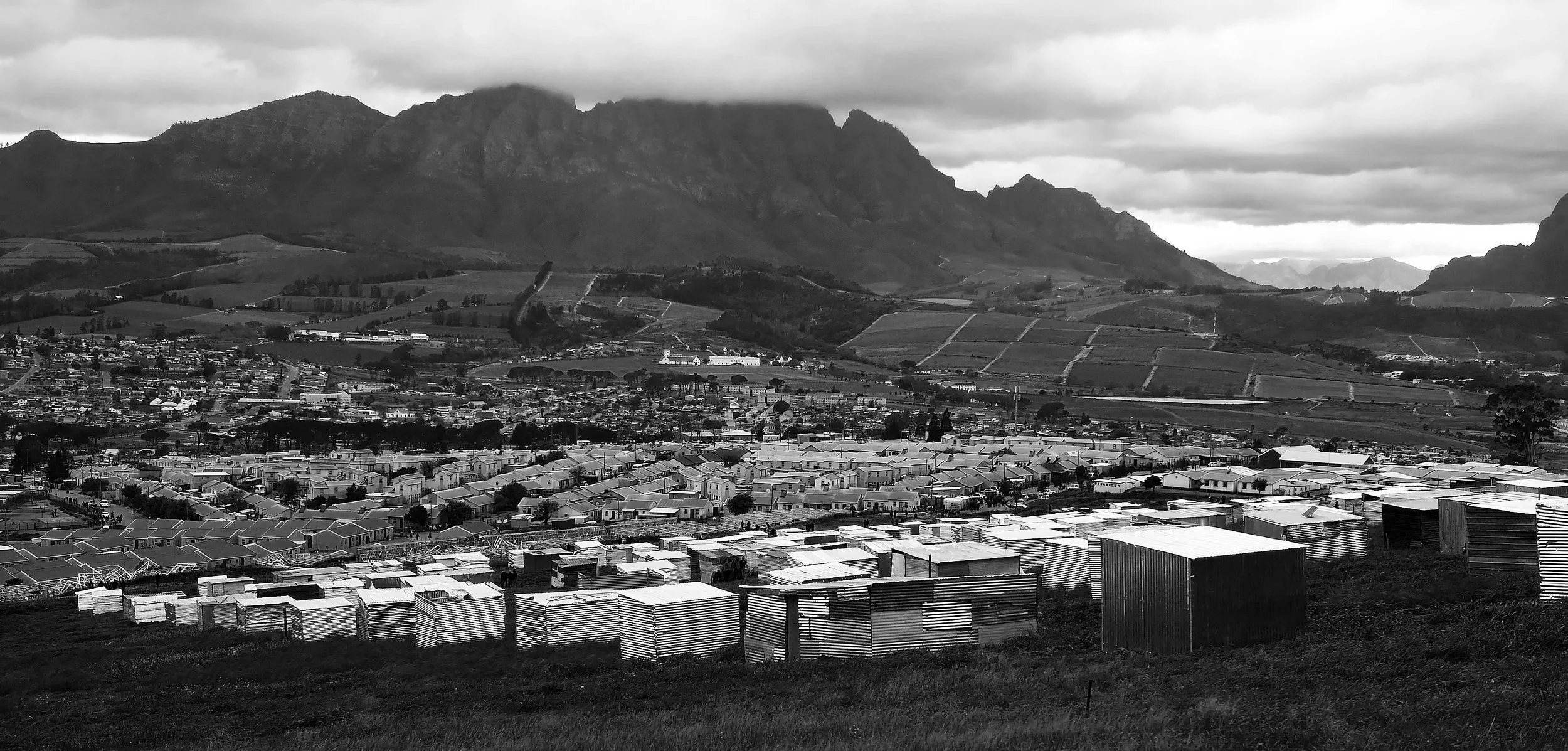UPDATE: The Development of First Smart Township in Africa
A view of Kayamandi and the greater Stellenbosch town.
During the first week of October I opened up my heart and shared what lies beneath me. I shared my deep desire to make a difference in a community that shaped my youth. I outlined my thoughts about what it would be like to use technology in a township environment and develop the first smart township in Africa. Some were excited to learn about this dream and were quick to offer some support. Some were skeptical and started asking around about who is behind this initiative. Some went so far as to try to create an impression that they were working on something similar. The reaction to my writeup about the Smart Township in Khayamandi has taught me a lot about Stellenbosch and what is standing in the way of progress for the marginalised communities.
During the first week of October I opened up my heart and shared what lies beneath me.
I shared my deep desire to make a difference in a community that shaped my youth. I outlined my thoughts about what it would be like to use technology in a township environment and develop the first smart township in Africa. Some were excited to learn about this dream and were quick to offer some support. Some were skeptical and started asking around about who is behind this initiative. Some went so far as to try to create an impression that they were working on something similar. The reaction to my writeup about the Smart Township in Khayamandi has taught me a lot about Stellenbosch and what is standing in the way of progress for the marginalised communities.
Throughout October I spent my weekends working with people who care deeply about others, developing an action plan and implementing some of my plans. I worked with a small team to create a community platform, Lunttu. I designed a skills development plan that will enable young people from Khayamandi to learn and build the township of the future.
We used the basic version of the platform to gather thoughts from the community about their dream Khayamandi. I was deeply inspired by the kind of future they would like to see in the next 10 years. The process of gathering community insights will continue for the next few months.
In view of the challenge in our community, we have limited time to wait for everyone to share their dream and not act to address some of the pressing issues. There’s a need now to act and at least tackle some of the lower hanging fruits.
One of those is the technology skills challenge. This is not just a challenge for young people in Khayamandi. It’s a challenge across South Africa (SA). There’s now a greater need for young people to have technology skills. The SA economy needs more people with tech skills.
To address this challenge, I’m reaching out to a couple of people from Khayamandi and elsewhere to start a social enterprise that will focus on technology skills development.
This entity will be known as the Lunttu Labs. This entity will play a crucial role in nurturing young people who will build the Khayamandi of the future. They will have to be involved in the process of developing technology tools that will make up the first smart township.
As from this coming weekend on Saturday (05 November 2022), we will start with the first session. These sessions will continue every weekend and online.
During the first few weeks, sessions will focus on inculcating the love of technology. These sessions will focus on enabling young people to understand technology career options.
It is my hope that by the end of this year we will have turned a sizable chunk of Khayamandi youth to be 50% enthusiastic about technology. One hopes that whether they stay or move over to pursue studies or work elsewhere the seed of technology will have been planted and one day they will contribute towards building other smart townships.
